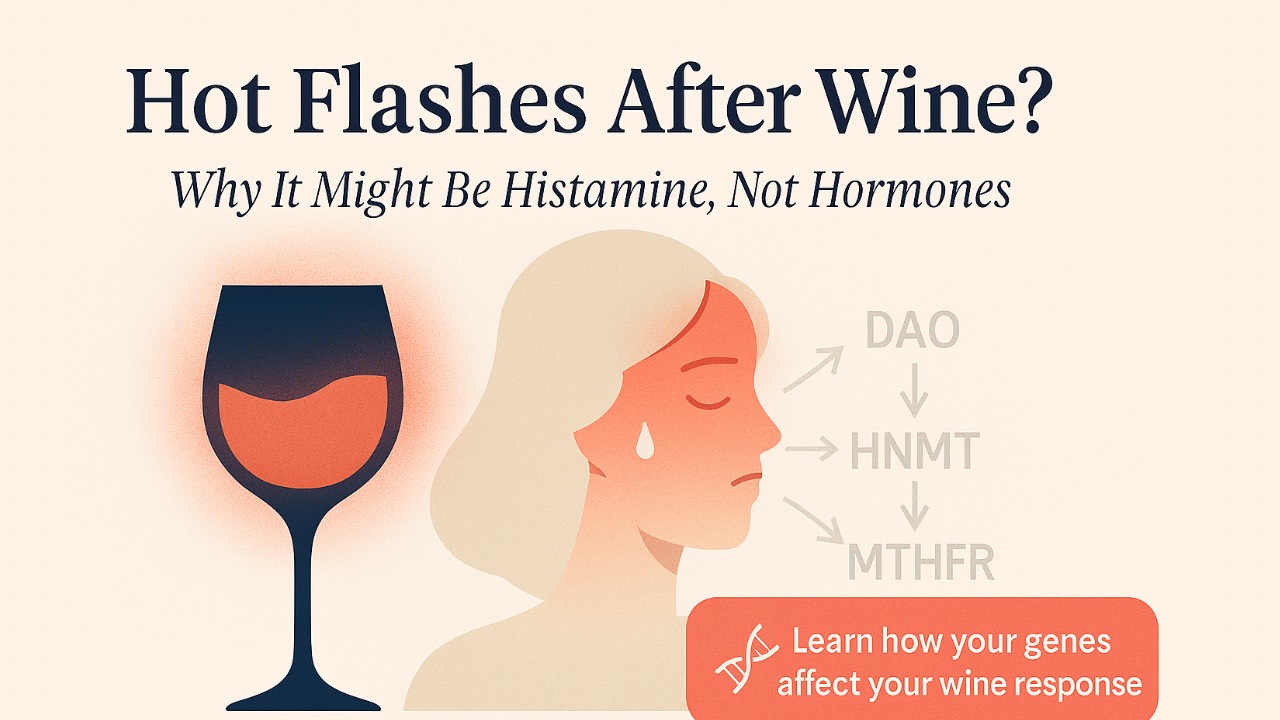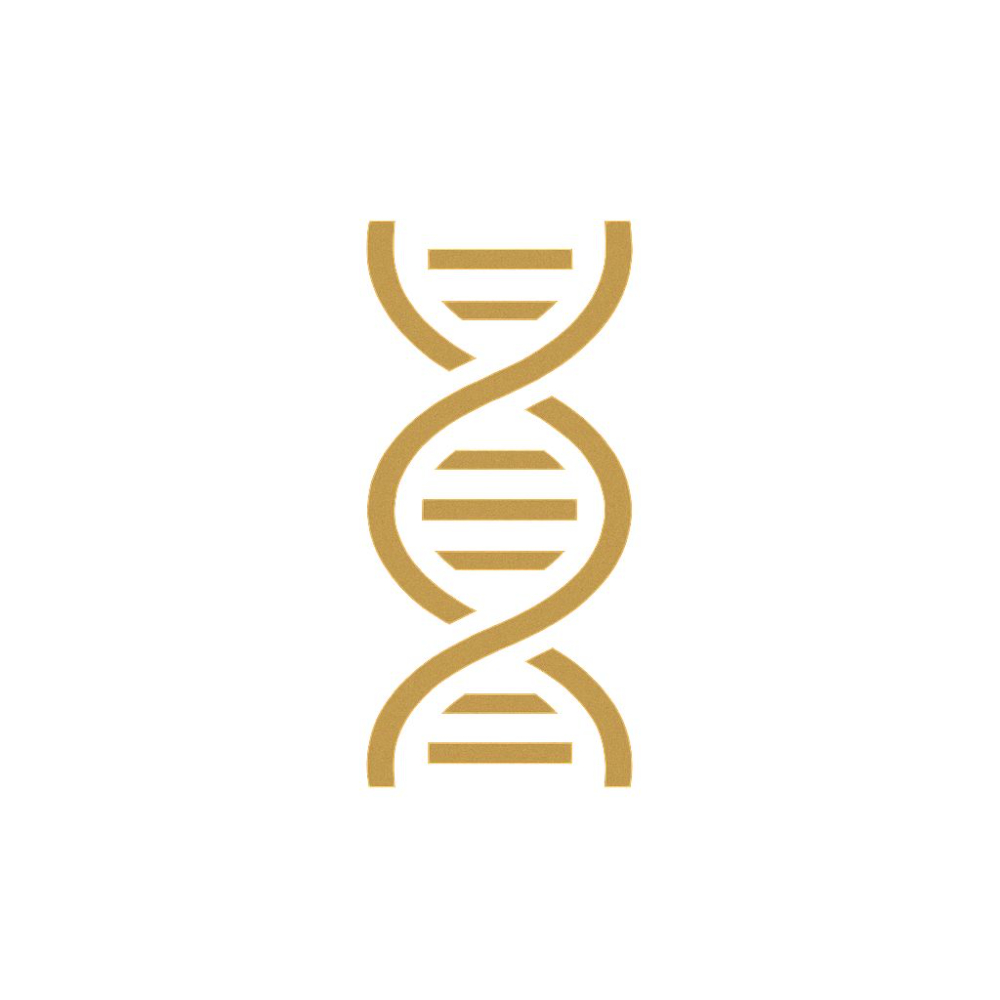Hot Flashes After Wine? Why It Might Be Histamine, Not Hormones

A Familiar but Frustrating Story
You’ve done the right things. Cut back on caffeine. Layered your clothing. Tried bioidentical hormones. Maybe even carried a handheld fan in your bag… just in case.
And still, one glass of red wine… and there it is. The flush. The warmth creeping into your chest. Skin that feels like it’s burning from the inside out. A sweat that builds before you even finish your drink.
It’s easy to chalk it up to hormones. Perimenopause, menopause, postmenopause. Hot flashes come with the territory… right?
But what if something else is amplifying the response?
What if it isn’t just about estrogen?
If you’ve noticed hot flashes that flare specifically after drinking wine, especially red, it might be time to talk about histamine.
Wine Is a Histamine-Heavy Trigger
Why Wine Spikes Histamine
Wine is aged, fermented, and often full of additives that strain histamine clearance. Red wine typically has the highest levels, but white wine and champagne can also contribute.
Additives like sulfites and preservatives can further impair your body’s ability to break histamine down. It can be a combo effect in histamine prone people.
What Histamine Does in the Body
Histamine acts like a chemical signal, it opens blood vessels, creates warmth and flushing, increases sensitivity, and triggers headaches or sweats.
In other words, it can mimic a hot flash almost perfectly.
Combine that with estrogen shifts and sluggish detox, and it’s no wonder the response can feel intense, even disproportionate.
Why Hormones and Histamine Cross Paths
Estrogen Affects Histamine
Estrogen doesn’t just influence reproductive hormones, it also affects histamine activity.
Higher estrogen levels increase histamine sensitivity. But lower estrogen (like in perimenopause and menopause) may reduce your ability to regulate histamine spikes, especially if your detox pathways are slowed down.
Genes That May Be Involved
Your body’s ability to manage histamine depends partly on genetics. Key genes to know:
- DAO: The main enzyme that clears histamine from the gut
- HNMT: Clears histamine in the brain (affects sleep, anxiety, overstimulation)
- MTHFR, PEMT, COMT: Regulate detox and methylation pathways that support histamine breakdown
You don’t need all of these genes to notice symptoms. Sometimes just one slow pathway, plus stress, hormones, or a high-histamine food, can tip the balance.
Real Symptoms of Histamine Intolerance
(That Mimic Hormones)
It’s Not Just Hot Flashes
Common histamine symptoms include:
- Flushing or skin warmth
- Heart palpitations
- Itchy skin or scalp
- Restlessness or insomnia
- Middle-of-the-night waking
- Bloating or pressure after meals
- Mood swings, especially anxiety or irritability
These can show up hours later or even the next day. It’s not always an instant reaction.
How to Know If It’s Histamine (Not Just Hormones)
Clue-Based Self-Audit
Ask yourself:
- Do your symptoms flare more after red wine, aged-cheese, spinach, avocado, cashews, walnuts or dark chocolate?
- Do they show up after stress, around your cycle, or at night?
- Do antihistamines help more than hormone therapy?
If yes, your histamine system might be part of the picture.
What You Can Do About It (Even If You Still Want to Enjoy a Glass of Wine)
Before You Drink
- Take a DAO enzyme 15 minutes before wine
- Eat a full meal, never drink on an empty stomach
- Hydrate before and during (dehydration amplifies histamine symptoms)
Support Your Histamine Clearance Pathways
- Try to open up detox pathways before meals (like arugula, lemon water, or dandelion)
- Increase magnesium, B6, and choline through whole foods
- Support methylation with leafy greens and cruciferous veggies
- Avoid stacking triggers: wine + leftovers + stress + sugar = trouble, all of these can overflow your histamine bucket.
If You Want to Test Further
- Track your symptoms with a histamine food journal
- Experiment with wine types—dry white or organic red may be gentler
- Consider genetic testing (like MaxGen’s Works Panel) to evaluate DAO, MTHFR, PEMT, and COMT
Final Thoughts: You’re Not Overreacting
What you’re feeling is real.
Your hot flashes after wine aren’t “just hormonal” or “just stress.”
They may be amplified by histamine and your body’s ability to manage it.
The good news? You don’t have to give up wine.
You just need to understand how much your system can handle and how to support it when things get overloaded.
Want To Learn More?
Want help untangling your histamine symptoms or exploring your genes?
[Schedule a Consult – COMING SOON]

